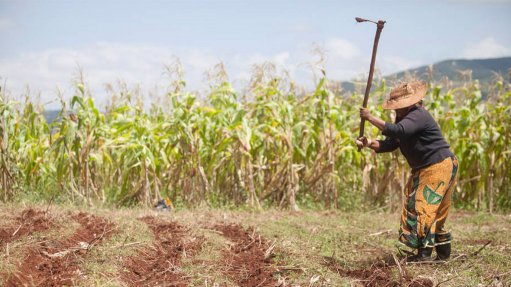
Focus on improving farm management and exploring high-yield farming methods have never been more important for smallholder farmers than at present, says FNB Agriculture information and marketing head Dawie Maree.
In a statement released on Thursday, he stressed that the industry was facing its most severe drought in 23 years, among other economic challenges, therefore, it had now become a case of survival of the fittest.
As such, smallholder farmers needed to emphasise the improvement of efficiency, and financial and farm management.
Maree said smallholder farmers should not sit back, wait and rely on support from State programmes and agribusinesses, but rather proactively look for ways to develop profitable farm operations through improved farm management.
Smallholder farmers had an important role to play in ensuring household food security and the overall growth of the agricultural sector in South Africa and Africa as a whole, he emphasised.
According to a report by the International Fund for Agricultural Development, there were about 500-million smallholder farms worldwide and more than two-billion people depended on them for their livelihoods. These small farms produced about 80% of the food consumed in Asia and sub-Saharan Africa.
Maree noted that while there was still much work to be done by government and the private sector to develop these businesses from a funding and support perspective, smallholder farmers should take the bull by the horns and adopt more efficient and sustainable farming techniques to survive.
Many smallholder farmers that had access to funding were still not taking advantage of the vast knowledge and technology available to increase crop yield and productivity - for example, adopting techniques such as selecting the right seeds and crop rotation to increase yield and generate more income.
“Unfortunately, the reality is that input costs will continue to increase and economic conditions will not improve anytime soon. Therefore, smallholder farmers will have to use all the resources available to them to increase their potential to survive.
“Change doesn’t happen overnight. Developing long-term strategies to introduce and implement changes will go a long way to ensure the sustainability of smallholder farmers,” said Maree.
Furthermore, smallholder farmers that aspired to break into the commercial market needed to remember that farming was a business. As such, optimal management of the farm’s resources, finance operations and production processes was essential for growth.
“For instance, smallholder farmers that have been financially impacted by droughts and are concerned about meeting their debt obligations should know when to approach their bank for assistance. Similarly, the farmer should know and understand the importance of insuring crops during planting season. These form part of the important aspects of farm management,” Maree explained.
He said the agricultural sector in South Africa was already dealing with a multitude of issues ranging from policy uncertainty, power and water shortages, rising input costs and unpredictable weather conditions. Moreover, smallholder farmers continued to grapple with issues such as access to markets and finance, transport and infrastructure costs.